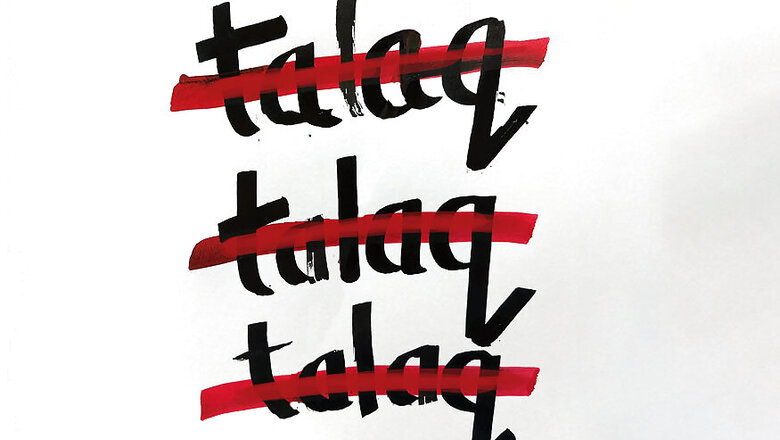
views
New Delhi: The Central government is all set to make talaq-e-biddat (instantaneous triple talaq) a penal offence, which may entail a jail term apart from monetary fine.
The government will either amend the existing provisions in statutes such as Dissolution of Muslim Marriage Act and Indian Penal Code or will draft a new law in this regard.
A ministerial committee has been set up to examine the subject matter and to make suitable recommendations in a time-bound manner. The committee is likely to include representatives from ministries of law and justice, women and child welfare, social justice and empowerment and minority affairs.
If the draft of a new law or the amendments to an existing statute is ready, sources in the government said, it could be introduced as early as in the upcoming winter session of the Parliament.
The move has come three months after the Supreme Court, by a majority verdict, declared triple talaq to be illegal and unconstitutional.
While the top court invalidated the century-old practice, the Modi government has now braced up to also outlaw it by making it a penal offence.
According to the sources, the decision to usher in a legal regime for the prohibition against triple talaq was taken in the wake of unending reports about Muslim men divorcing their wives by pronouncing talaq three times in one go.
“As the situation today stands, even after the instantaneous triple talaq has been held to be invalid by the Supreme Court, there is no appropriate forum for an aggrieved woman. She can either approach the police or a court for redressal. At the most, a declaration can be obtained from a court of law that the talaq was ineffective. Even the police cannot do anything because the IPC is silent on this issue” said a source.
The functionary added that since there is no sufficient deterrent for a Muslim man under the law, a statutory regime to book him under penal charges would certainly daunt him. Besides, the new regime would give a sense of security and confidence to the Muslim wives, who would know where to go if their husbands commit such illeagalities, said the functionary.
The government also took a cue from the Supreme Court judgment, wherein two of the five judges were of opinion that it was for the Central government to frame a law in this regard if it wanted to ban the practice. “The Union seeks at our hands, what truly falls in its own,” the judgment by these two judges had held.



















Comments
0 comment